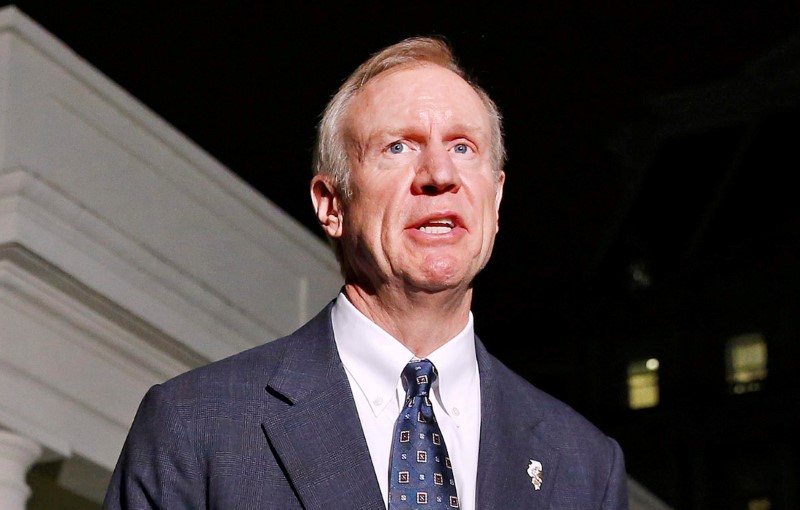By Dave McKinney and Karen Pierog
CHICAGO (Reuters) - The fate of a spending plan and tax hike aimed at ending Illinois' unprecedented two-year budget impasse moved on Tuesday to the Democratic-controlled House of Representatives, which will seek to enact the legislation by overriding the Republican governor's vetoes.
Steve Brown, a spokesman for Democratic House Speaker Michael Madigan, gave no time frame on possible House votes, though some House Democrats posted on their social media accounts that voting would take place on Thursday.
“We’re still assessing when the best day will be for the people who supported passage of the legislation to return and deal with the veto message,” Brown said in an interview.
In an action-packed Fourth of July holiday session, the Democratic-led Senate gave final legislative approval to a $36 billion fiscal 2018 budget and $5 billion tax increase package passed by the House Sunday and Monday.
Within hours, Governor Bruce Rauner vetoed the trio of budget and revenue measures. The Senate then quickly overrode the vetoes, moving the final override to enact the bills over the governor's vetoes to the House.
A stalemate between Rauner and Democrats who control the legislature has left the nation's fifth-largest state without a complete budget for two fiscal years. While fiscal 2018 began on Saturday, lawmakers have been scrambling to piece together a spending and revenue plan to avoid Illinois becoming the first-ever U.S. state whose credit is rated junk.
Ted Hampton, an analyst at Moody's Investors Service, which rates Illinois at Baa3, one notch above junk, said on Tuesday a continuation of the state's budget impasse would not bode well from a credit standpoint.
"That's going to be a negative for the state's credit position not reflected in its (current) rating," he said.
In his veto message, the governor lashed out at lawmakers for passing budget measures that he said would make Illinois’ fiscal woes worse.
"The package of legislation fails to address Illinois’ fiscal and economic crisis – and in fact, makes it worse in the long run. It does not balance the budget. It does not make nearly sufficient spending reductions, does not pay down our debt, and holds schools hostage to force a Chicago bailout,” Rauner said.
The House on Tuesday adjourned until Wednesday without taking action on the override resolutions, a result of diminished ranks on a national holiday. Only 54 of the chamber’s 118 members were present on Tuesday afternoon - too few to conduct business under House rules.
Among the missing were five of 15 House Republicans who had been vital for the tax increase piece of the budget package to pass on Saturday with 73 votes. Seventy-one votes are necessary to block Rauner’s vetoes.

The House speaker's spokesman, Brown, said he did not foresee any danger that previous votes in support of the budget - including from the 15 Republicans - would flip toward the governor, endangering the override push.